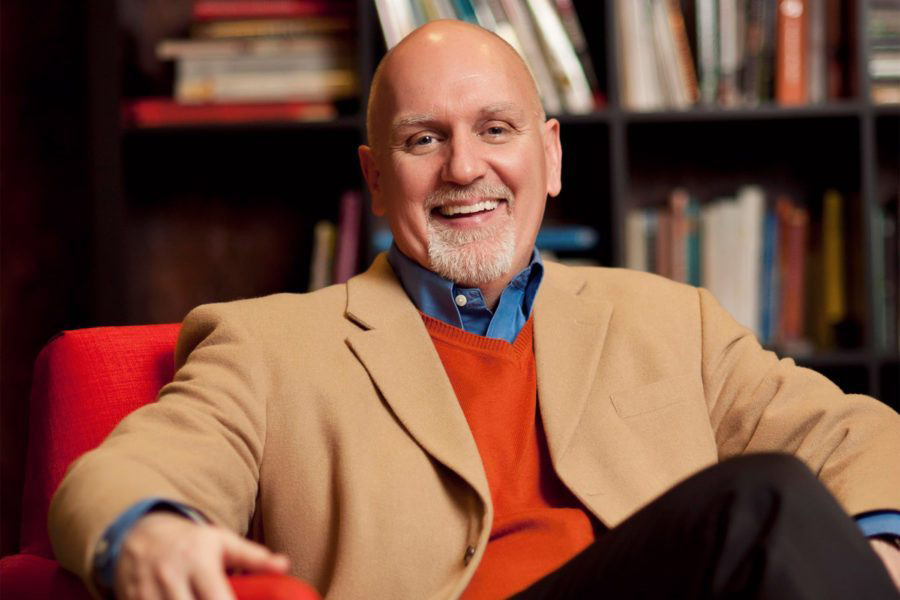PODCAST PEOPLE: A Summary of the Real Leaders Podcast
“In leading with gratitude, I promise you this: you will live a better life, you’ll feel better about the work you do with the people that you work with. It’ll ripple into your personal life, it will ripple into your community. There aren’t too many guarantees in life — this is a guarantee. You bring more gratitude into your life, gratitude attracts gratitude. Better way to lead. Better way to live.”
Chester Elton is the #1 bestselling leadership author and co-founder of The Culture Works professional training and coaching. Renowned for his keynote speaking as an Apostle of Appreciation, a Deacon of Danke Schoen, a Minister of Motivation, and a Dalai Lama of Workplace Trauma, he is now recognized as one of the Real Leaders Top 50 Keynote Speakers Worldwide.
The following is a summary of Episode 128 of the Real Leaders Podcast, a conversation with Top 50 Keynote Speaker Chester Elton. Watch, read or listen to the full conversation below.
Lead with Gratitude
Chester explains the significance of leaders who are appreciative of the people who work for them and grateful to their customers. This kind of leadership consequently fosters humility that makes company culture work, attracts good people, keeps good people, and produces results.
“Gratitude is that emotional connection to work. If you want to be a truly extraordinary leader, and you want to build a culture where people feel safe to innovate, and work hard and bring their best selves to work every day, you have to know how to lead with gratitude.”
Expressing gratitude means giving people your time, listening to their voices, and encouraging them to participate. But leading with gratitude requires leaders to be both intentional and disciplined. Chester suggests leaders develop an attitude of assuming positive intent towards their people. This means believing everyone wants to perform well, which will ensure long-term results and a more productive workplace.
“Often as leaders, we think if we lead by fear, we’re gonna get those quick hits, and you can get short term results leading with fear. You really want long term results, you need to believe that people come to work every day to do a good job. And in trying to do that good job, they’re gonna make mistakes. And you know what, that’s okay, we can fix the mistake, we can move on. Assuming that positive intent goes a long way to creating a culture of gratitude.”
There are no Mistakes, Only Learning Moments
Chester explains that innovation in any setting requires mistakes as part of the process. But even so, many people don’t feel safe enough at work to admit when they’ve made a mistake and try to hide it. In a healthy culture, mistakes are acknowledged, accepted, and everyone works together to try and fix them.
Chester cites a study conducted at the University of California which found that people who are happy, motivated, and engaged at work are 150% more likely to be happy, motivated, and engaged in their personal life. Spending so much time at work, if we come from a miserable situation, we bring that misery home with us. But if we come from a positive and engaging experience, that’s what we bring home instead.
“Leading with gratitude and understanding motivators and putting people in a place where they can succeed and feel good about themselves, where they feel safe and they feel listened to, it’s not just good for the company, it’s good for their families, it’s good for their communities. The ripple effect is phenomenal.”
What are Your Three?
Chester shares a daily practice that helps him sustain gratitude. At the end of each day he and each member of his family list the three things they’re grateful for that day. Big or small, they add up to something significant.
“Simple little practices like that really do help you stay engaged at home so you don’t leave your best self at home. Or you don’t leave your best self at work. You find that harmony where you can take what’s good at work and bring it home, and bring what’s good at home and take it to work.”
Titled Mentioned:
- Tribe Culture by Garry Ridge
- Think Like a Monk by Jay Shetty
By Chester Elton and Adrian Gostick:
- The Carrot Principle: How the Best Managers Use Recognition to Engage Their People, Retain Talent, and Accelerate Performance
- Managing with Carrots: Using Recognition to Attract and Retain the Best People
- Leading with Gratitude: Eight Leadership Practices for Extraordinary Business Results
Transcript
Connect
Find more of Chester’s insights here:




































